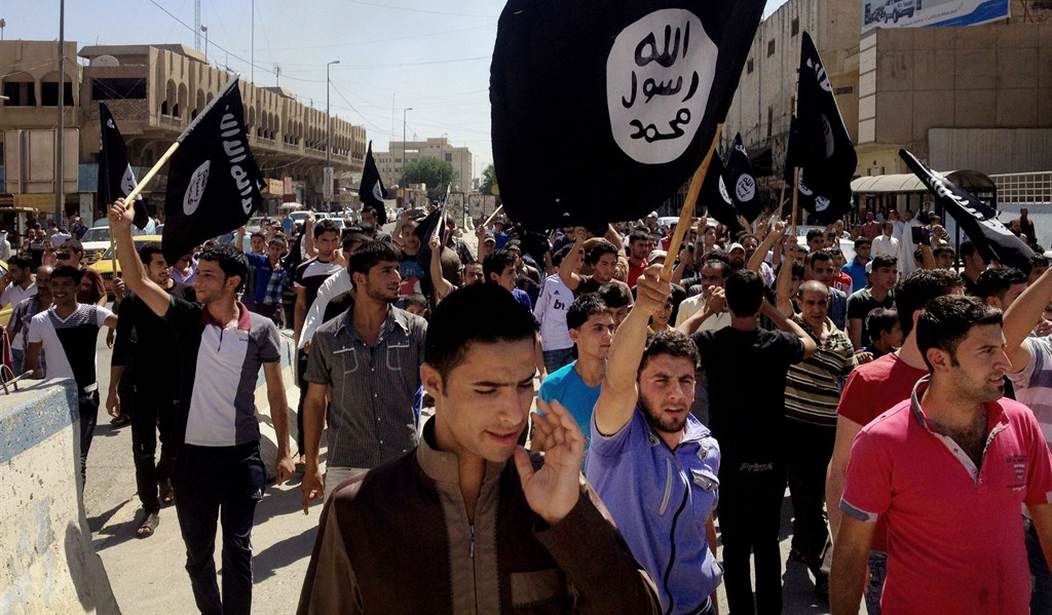For years Border Patrol agents have expressed concern about America's immigration policies, saying that the United States' southern border was vulnerable. They have expressed concerns about a potential terrorist using the United States-Mexico border as a means of gaining access to America to carry out a terrorist attack. And, not surprisingly, their fears have become a reality.
Border Patrol agents are extremely overwhelmed along our southern border. They are spending the majority of their time processing people instead of actually protecting our border. Up until now, we haven't really seen terrorists utilize our southern border to carry out an attack. Homeland Security Today says that's because very few Americans have successfully made it to Syria and Iraq for recruiting purposes. The FBI tends to stop them dead in their tracks.
In May, ISIS attempted to utilize typical migration routes through Central America, to the United States' southern border, to create a financial attack that was expected to ruin America's economy.
Abu Henricki al Canadi, a Canadian with dual Trinidadian citizenship, was detained by the Syrian Democratic Forces in Rojava, Syria. He spoke with the International Center for the Study of Violent Extremism reachers about his firsthand experience of being groomed for the Islamic State as well as what it was like traveling, joining and serving them. When he first arrived he was a fighter but was diagnosed with a chronic illness, which they said made him unable to fight.
“There’s something that’s kind of like was playing in the mind in the past a little while now,” he told researchers. “I have been contacted by two organizations from the U.S. and Canada to help stop foreign attacks. The one guy in Canada wants to take me under his wing. Another one [the American intel] wants me to go around to people I met, Americans from Texas.”
Recommended
According to researchers, obtaining information on Americans who join the Islamic State is very rare.
“There was a Bengali American. Abu Adam. Two cousins. They were from New York. One was American, but Turkish – Abu Ilias. He was from Texas. He was killed in Baghouz in a drone strike. I didn’t see his body, but others did."
Al Canadi said he he and other Trinidadians were asked to penetrate the United States' borders to carry out a financial attack.
“The emni [ISIS intelligence arm] was inviting us."
Although he couldn't remember the person's name, Al Canadi said they usually wore masks to hide their faces.
“He speaks English. He was Tunisian, maybe. I don’t know. He approached the guys, and they approached me. He didn’t come directly to me," Al Canadi said. “They, what they will have, what they wanted to do, basically, is they wanted to do financial attacks. Financial attacks to cripple the [U.S.] economy. Apparently, they have the contacts or whatever papers they can get to a false ID, false passports [to send me out for this kind of attack]. They have their system of doing it. So that’s maybe the way that I could have gone out with other individuals. It wasn’t me alone. They were sending you to Puerto Rico and from Puerto Rico [to Mexico].”
He said that he was asked to leave ISIS to go back to America because they wanted him to carry out the attack.
“One reason while I was also put in [ISIS] prison in 2016, I was asked to leave [ISIS] to go to America because I’m from that area. Cause they wanted [and] planned to do something and I refused," Al Canadi said. “I refused to do it. That is why also I’m put into [ISIS] prison and been tortured.”
According to Al Canadi, they planned to move him to Puerto Rico. He would then take a boat from Puerto Rico to Mexico, at which point he would be smuggled into the United States.
"This was mastermind[ed] by a guy in America. Where he is, I do not know. That information, the plan came from someone from the New Jersey state from America. I was going to take a boat [from Puerto Rico] into Mexico. He was going to smuggle me in,” Al Canadi said. “I don’t know where I’d end up.”
He said he refused to carry out the attack, which is why he believes he was put in a prison and tortured.
“Please be advised, I was not willing to do it but this is one of their wicked, one of the plans that they had and which I would like to think I foiled the plan by not being part of it," he explained.
Although he was told the attack would take place on America's financial system, he wasn't given the exact details of the plot. Al Canadi speculates an attack on Wall Street and New York financial institutions since the man behind the plan was from New Jersey.
He believes that those who were also approached about carrying out the attack are dead.
"I think they died. I think they also refused. They were still around [inside the Caliphate], in late 2017, and then were killed, hit by airstrikes. My Trinidadian [friends] were approached to do the same thing,” Al Canadi explained. “The Trinidadians, [like me,] also refused. Abu Rahman, Abu Fukai and Abu Salahi, Abu Ana – all dead. I came in [to the Caliphate] with them. Abu Rukiah was hit by a sniper.”
The others were hit by bombs.
“I was in the vicinity. I saw their dead bodies and went to their burials,” he said. “They wanted to use these people [to attack inside the U.S.] because they were from these areas [i.e. North America and English-speakers],” Al Canadi said.

























Join the conversation as a VIP Member